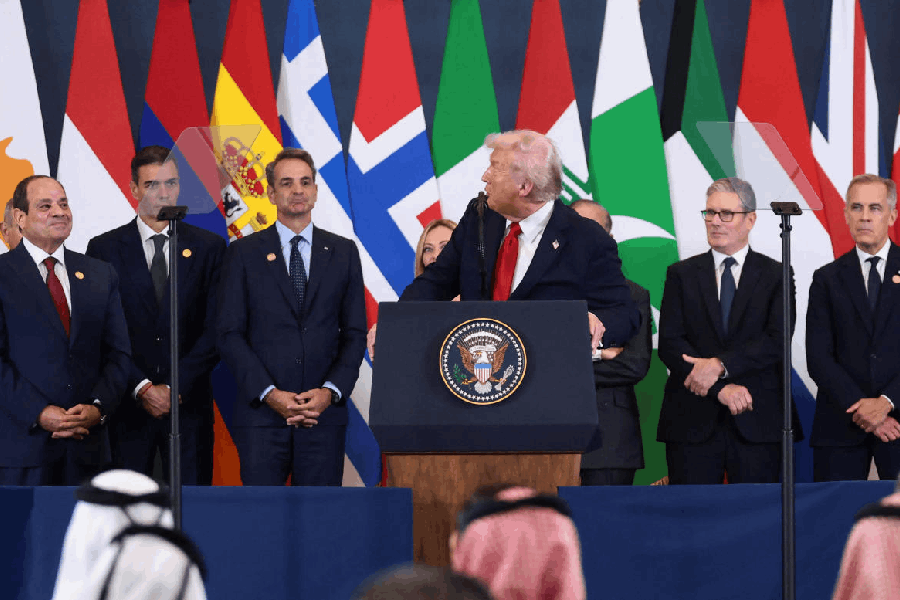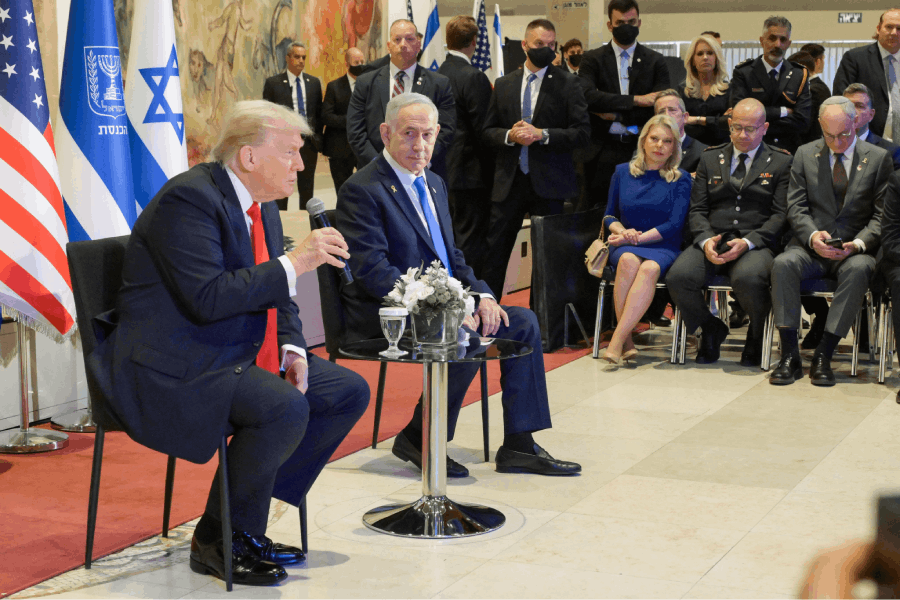US President Donald Trump arrived in Egypt on Monday to participate in a global summit on Gaza, joining Egyptian President Abdel Fattah El-Sissi and other world leaders.
The summit, hosted at the Red Sea resort of Sharm El-Sheikh, comes at a fragile moment of hope for ending two years of war between Israel and Hamas.
El-Sissi described Trump’s Mideast peace proposal as the “last chance” for resolving regional conflicts, reiterating his support for a two-state solution and the Palestinians’ right to an independent state alongside Israel.
During the summit, El-Sissi awarded Trump the Order of the Nile, Egypt’s highest civilian honour.
Trump praised the Egyptian president for his leadership, calling him "a powerful figure who has helped keep crime down in Egypt and played an important role in the peace process."
Mediators from Egypt, Qatar, and Turkey signed a document with Trump outlining the Gaza ceasefire deal, marking a significant step toward implementing the first phase of the agreement.
The initial phase of the ceasefire calls for the release of remaining hostages held by Hamas, the freeing of hundreds of Palestinian prisoners held by Israel, a surge in humanitarian aid to Gaza, and a partial Israeli pullback from Gaza’s main cities.
Twenty hostages were released on Monday, with Trump meeting some of their families at the Knesset in Jerusalem.
Earlier in the day, Trump delivered a speech at the Knesset, urging Palestinians to “turn forever from the path of terror and violence” and calling for reconstruction and prosperity in Gaza after years of conflict.
“After tremendous pain and death and hardship, now is the time to concentrate on building their people up instead of trying to tear Israel down,” he said.
He also extended a gesture to Iran, emphasizing that “the hand of friendship and cooperation is always open.”
Trump described the ceasefire as an opportunity to reshape the region and improve relations between Israel and Arab nations.
He acknowledged that much of Gaza remains devastated, saying, “This is like a demolition site,” but expressed hope to visit the territory in the future.
The White House indicated that momentum is building as Arab and Muslim states demonstrate renewed focus on resolving the decades-long Israeli-Palestinian conflict, with some strengthening ties with the United States.
Israeli Prime Minister Benjamin Netanyahu, who declined to attend the summit citing proximity to a Jewish holiday, praised Trump as “the greatest friend Israel has ever had in the White House” and pledged to continue working together toward peace.
During his Knesset address, Trump unexpectedly called on the Israeli president to pardon Netanyahu, who faces pending corruption charges.
The summit brings together representatives from more than two dozen countries, with roughly 200 US troops expected to help monitor the ceasefire.
Despite the ceasefire, key issues remain unresolved, including Gaza’s postwar governance, reconstruction, and Israel’s demand for Hamas to disarm.
The fragile situation leaves the possibility of renewed conflict if agreements are not upheld.
Trump’s trip follows a whirlwind itinerary, including a visit to Israel, and comes at a pivotal moment for peace efforts in the region.
The success of the ceasefire and the broader plan remains uncertain, but both leaders stressed the importance of seizing the current opportunity for stability and reconstruction in Gaza.











